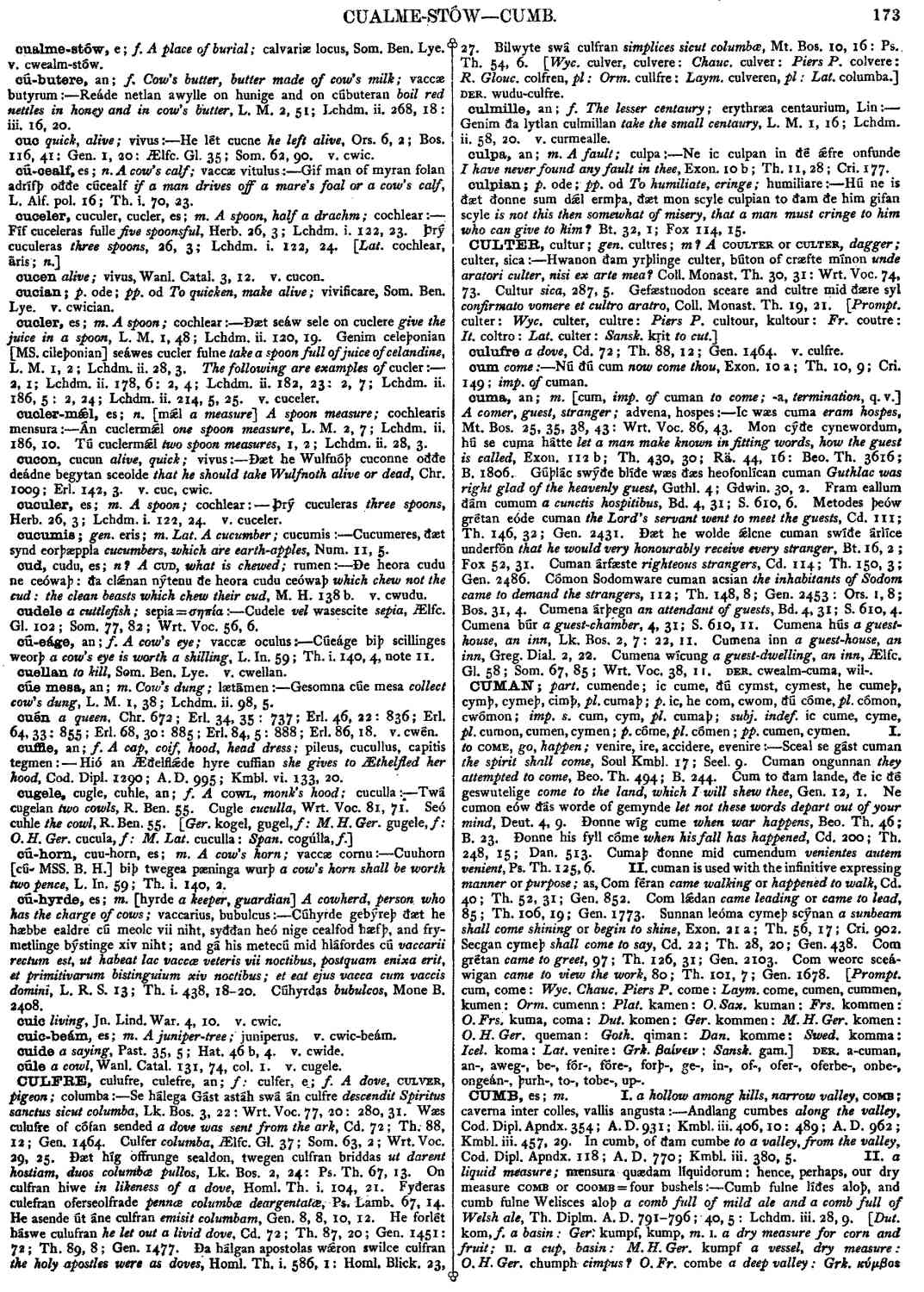CUMAN
- verb [ strong ]
-
Sceal se gást cuman
the spirit shall come,
Soul- Kmbl. 17 ;
- Seel. 9 .
-
Cuman ongunnan
they attempted to come,
- Beo. Th. 494 ;
- B. 244 .
-
Cum to ðam lande, ðe ic ðé geswutelige
come to the land, which I will shew thee,
- Gen. 12, 1 .
-
Ne cumon eów ðás worde of gemynde
let not these words depart out of your mind,
- Deut. 4, 9 .
-
Ðonne wíg cume
when war happens,
- Beo. Th. 46 ;
- B. 23 .
-
Ðonne his fyll cóme
when his fall has happened,
- Cd. 200 ;
- Th. 248, 15 ;
- Dan. 513 .
-
Cumaþ ðonne mid cumendum
venientes autem venient,
- Ps. Th. 125, 6.
- 80; Th. 101, 7; Gen. 1678.
Bosworth, Joseph. “CUMAN.” In An Anglo-Saxon Dictionary Online, edited by Thomas Northcote Toller, Christ Sean, and Ondřej Tichy. Prague: Faculty of Arts, Charles University, 2014. https://bosworthtoller.com/6806.
Checked: 1